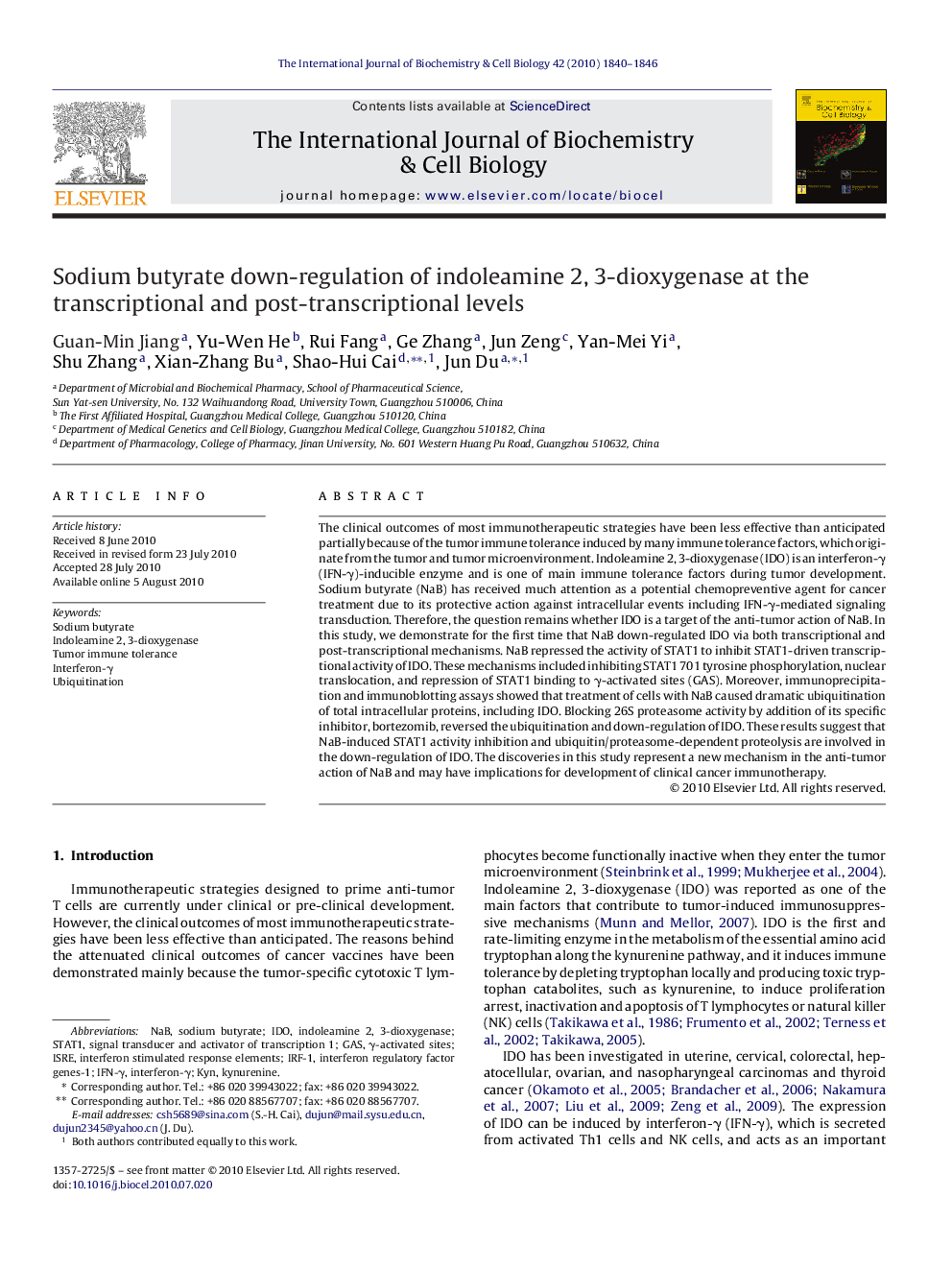| Article ID | Journal | Published Year | Pages | File Type |
|---|---|---|---|---|
| 1984308 | The International Journal of Biochemistry & Cell Biology | 2010 | 7 Pages |
The clinical outcomes of most immunotherapeutic strategies have been less effective than anticipated partially because of the tumor immune tolerance induced by many immune tolerance factors, which originate from the tumor and tumor microenvironment. Indoleamine 2, 3-dioxygenase (IDO) is an interferon-γ (IFN-γ)-inducible enzyme and is one of main immune tolerance factors during tumor development. Sodium butyrate (NaB) has received much attention as a potential chemopreventive agent for cancer treatment due to its protective action against intracellular events including IFN-γ-mediated signaling transduction. Therefore, the question remains whether IDO is a target of the anti-tumor action of NaB. In this study, we demonstrate for the first time that NaB down-regulated IDO via both transcriptional and post-transcriptional mechanisms. NaB repressed the activity of STAT1 to inhibit STAT1-driven transcriptional activity of IDO. These mechanisms included inhibiting STAT1 701 tyrosine phosphorylation, nuclear translocation, and repression of STAT1 binding to γ-activated sites (GAS). Moreover, immunoprecipitation and immunoblotting assays showed that treatment of cells with NaB caused dramatic ubiquitination of total intracellular proteins, including IDO. Blocking 26S proteasome activity by addition of its specific inhibitor, bortezomib, reversed the ubiquitination and down-regulation of IDO. These results suggest that NaB-induced STAT1 activity inhibition and ubiquitin/proteasome-dependent proteolysis are involved in the down-regulation of IDO. The discoveries in this study represent a new mechanism in the anti-tumor action of NaB and may have implications for development of clinical cancer immunotherapy.
